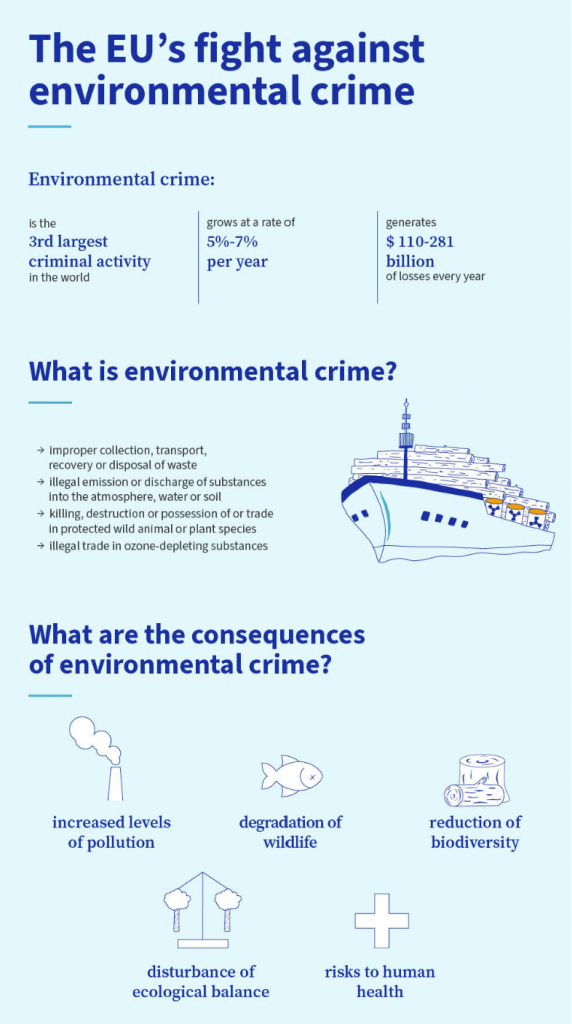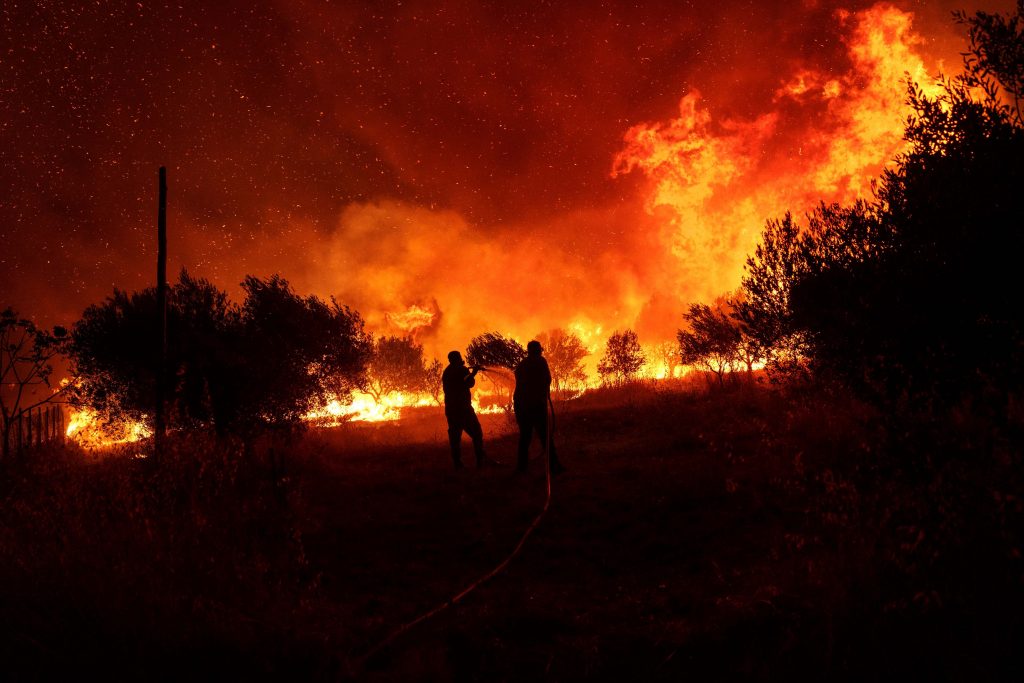The Council of the European Union adopted a law on environmental crime, aiming to “take action against one of the world’s most lucrative criminal activities”, according to the Council’s announcement.
The key objectives of the law are to: improve the investigation and prosecution of environmental crime, to define new types of criminal offenses, and to harmonize penalties to individuals and legal persons.
The law replaces an outdated 2008 Directive, which the Council says is no longer aligned with the EU’s environmental law.
With the new law, pollution caused by ships, mercury use and the illegal depletion of water resources are added to the EU’s list of environmental crime, amongst others.
According to the Council of the European Union, environmental crimes are the third largest criminal activity globally.

Violators of the law may face sanctions and prosecutors themselves will receive more support to go over perpetrators, with this new law. And the most severe form of environmental crime, equivalent to ecocide, is now recognized as an offense.
The new directive also foresees imprisonment of individuals and company representatives for environmental crimes and depending on how long-lasting, severe or reversible the damage is.
Lawmakers are also requiring offenders to reinstate the affected areas as well as compensate for losses. Violating companies may have to pay penalties of up to 5 percent of their annual turnover.
Critics of the law, who say that it does not go far enough, point out that the highly profitable illegal fishing industry still has not been adequately addressed.
The Council’s passing of the law was the last procedural milestone for the law to be passed in the EU, as it had already been accepted by the European Parliament at the end of February. Greece, along with all EU Member States, will have around two years to implement and enforce the law.
Additionally, to ensure transparency, MEPs have called on EU governments to provide whistle-blowers with support and assistance with regard to criminal proceedings. They are also requesting that specialized training is offered to police, judges, and prosecutors and that governments formulate awareness-raising campaigns to fight environmental crime.
“It is a major step in the right direction that any person in a leading position at a company responsible for polluting can be held liable as well the business itself. With the introduction of a duty of care, there is nowhere else to hide behind permits or legislative loopholes,” said European Parliament Rapporteur Antonius Manders, adding that “polluters will pay”.







